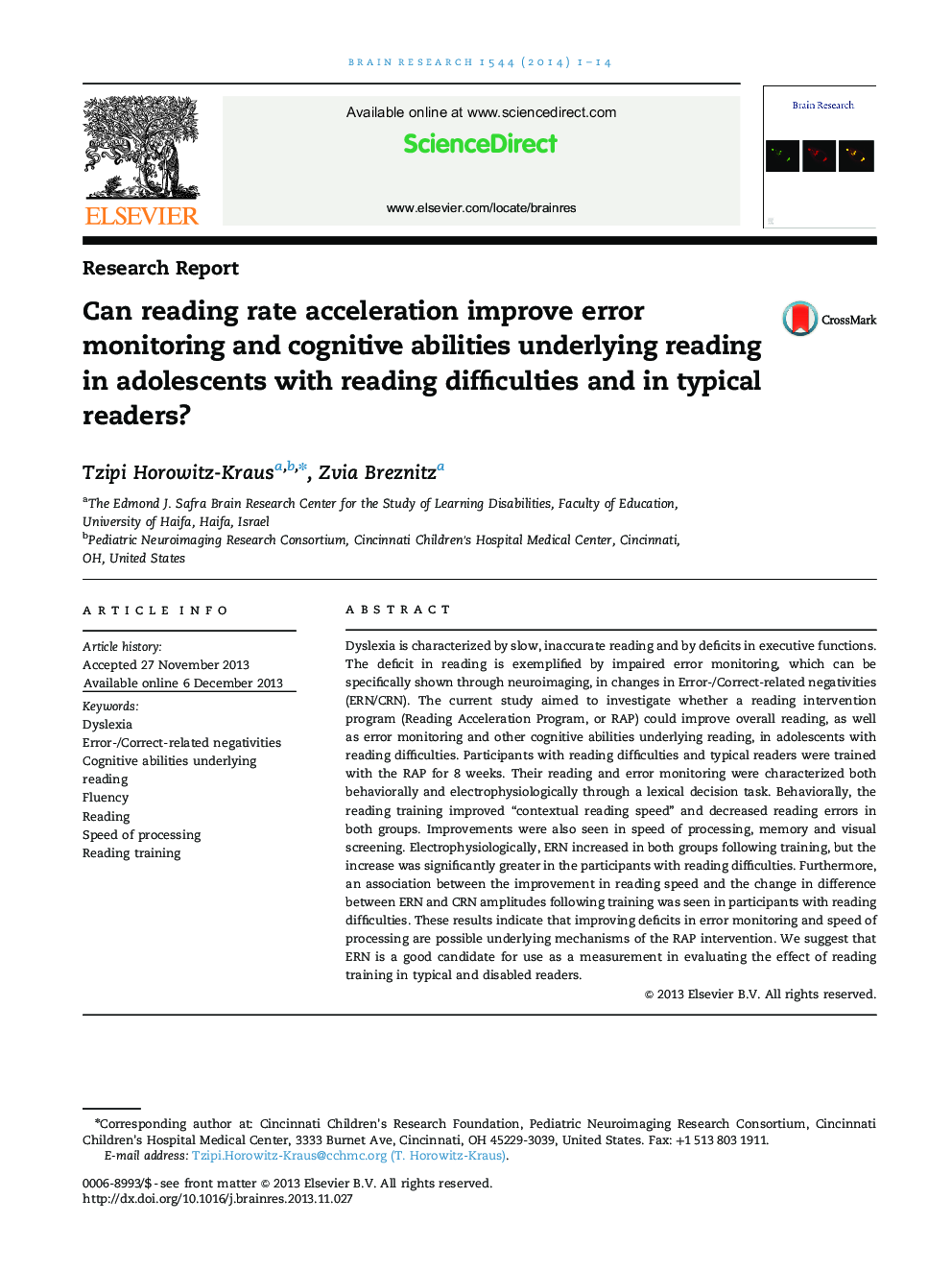| Article ID | Journal | Published Year | Pages | File Type |
|---|---|---|---|---|
| 4324483 | Brain Research | 2014 | 14 Pages |
•An accelerated-reading training improved reading in adolescents with reading difficulties.•Reading training improved error monitoring in adolescents with reading difficulties.•Reading training improved cognitive abilities related to reading in adolescents with reading difficulties.•The effect of training was more pronounced in adolescents with reading difficulties than in typical readers.
Dyslexia is characterized by slow, inaccurate reading and by deficits in executive functions. The deficit in reading is exemplified by impaired error monitoring, which can be specifically shown through neuroimaging, in changes in Error-/Correct-related negativities (ERN/CRN). The current study aimed to investigate whether a reading intervention program (Reading Acceleration Program, or RAP) could improve overall reading, as well as error monitoring and other cognitive abilities underlying reading, in adolescents with reading difficulties. Participants with reading difficulties and typical readers were trained with the RAP for 8 weeks. Their reading and error monitoring were characterized both behaviorally and electrophysiologically through a lexical decision task. Behaviorally, the reading training improved “contextual reading speed” and decreased reading errors in both groups. Improvements were also seen in speed of processing, memory and visual screening. Electrophysiologically, ERN increased in both groups following training, but the increase was significantly greater in the participants with reading difficulties. Furthermore, an association between the improvement in reading speed and the change in difference between ERN and CRN amplitudes following training was seen in participants with reading difficulties. These results indicate that improving deficits in error monitoring and speed of processing are possible underlying mechanisms of the RAP intervention. We suggest that ERN is a good candidate for use as a measurement in evaluating the effect of reading training in typical and disabled readers.
